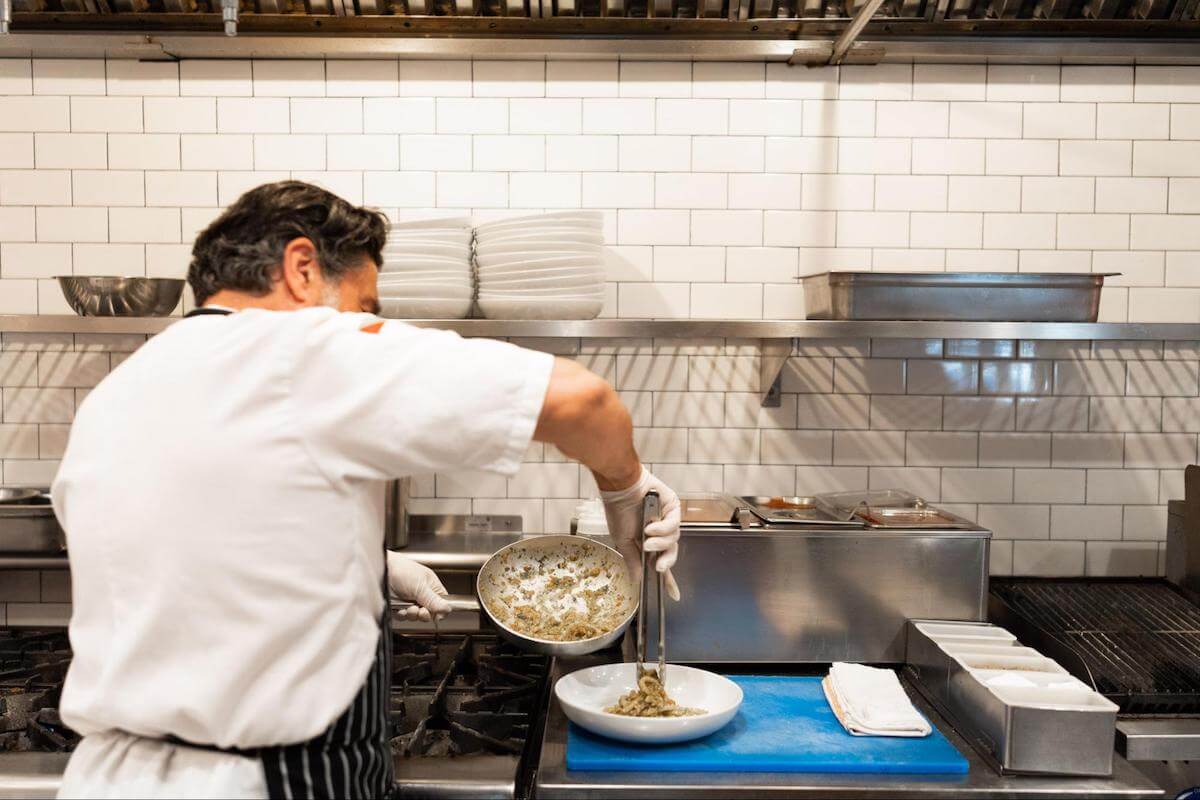10 essential tax deductions for restaurant owners
Skip the article and turn takeaways into action by scheduling a call with our team.
Tax season is on its way. Hooray! It’s everyone’s favorite time of year, especially for those who run small businesses like restaurants. All joking aside, since taxes are about the least funny topic possible, restaurant owners know well just how complicated tax deductions can be.
Most are looking to maximize their write-offs as much as possible to help shore up their bottom line. Luckily, a number of business expenses in the restaurant industry are deductible, but things are a bit complicated. That’s why we’re here today to talk about tax deductions for restaurant owners.
It’s pretty normal for taxpayers to try to minimize their taxable income as much as possible. Taxes for restaurants are different from those for grocery stores, convenience stores, or liquor stores, for example, since most food is served for immediate consumption at an official eating facility.
We’re going to look at 10 essential tax deductions for restaurant owners and how they can work to your benefit.
Before we dive in, here’s an important note: We highly recommend getting in touch with a tax professional like a certified professional accountant (CPA) in your area. Local, state, and federal business taxes are complex and change frequently, and we are not tax professionals.
1. Labor costs

Restaurant owners will likely be very happy to note that labor costs are fully tax deductible. This means that the pay for all staff, including chefs, bartenders, servers, managers, and more, is deductible. For the restaurant business, employee pay is often the biggest cost of all, so being able to deduct these costs from taxes is a huge relief. Benefits like insurance, retirement accounts, vacation pay, and bonuses fall under this purview as well.
Contractors like musicians or other entertainers are covered in this if they’re on salary, but not if they’re hired as independent contractors. Entertainment expenses over $600 require a 1099 form to be given to the entertainer.
It’s critical to keep very close track of payrolls and employee timesheets should you have to prove your labor costs to any tax assessor.
Servers should also take note of what they can deduct for their personal taxes. For example, servers can usually deduct licenses like a food handler’s license, mileage driven while at work, or work requirements like uniforms. Tips given to tip pools that are then distributed aren’t taxable either, though servers are required to keep track of their tips and report them to the IRS.
2. Operating costs
Many operating expenses are tax deductible as well. This is true for many businesses, and not just the restaurant industry. Property rent, office supplies, utilities, and other basic, must-have items and services can be deducted from taxes. Business meals with staff or third parties can be deductible as well, and the business meal deduction is a pretty well-established idea. Again, we highly recommend keeping track of all these payments through a rock-solid bookkeeping practice so you can document all costs when tax time comes around.
A bit more on meal deductions
There have been significant changes for the 2023 tax year. For the 2021 and 2022 tax years, many business meals are 100% deductible. That is no longer the case, as of January 1, 2023 according to the Consolidated Appropriations Act. Business meals are now deductible at 50% of cost. Transportation workers, specifically those who work for the Department of Transportation, can deduct meal costs at 80% for the 2023 tax year and beyond. The temporary 100% deduction was intended to help restaurants during the pandemic, and applies to your 2022 taxes.
Note that if your meal costs are upwards of $75, you’ll need to keep the receipt for proof. Under that limit, you don’t need to.
3. Advertising expenses
Advertising expenses, including advertising on social media, are deductible as well. Any money spent on marketing and advertising is often money well spent because it helps generate revenue while cutting down on restaurant taxes. So whether you’re paying for ads on social media or platforms like Yelp, printing flyers, purchasing billboard space, or hiring a copywriter, keep track of all those payments and deduct them from your taxes later.
4. Food costs

Food costs clearly represent a significant part of a restaurant’s overall costs. They, too, are tax deductible. Keeping track of the cost of food can be challenging since inventory flows in and out every day, so make sure you have a handle on your cost of goods sold (COGS). You can keep track of your COGS weekly, monthly, and yearly to have a good overview of just how much you’re spending on food. This applies to beverages too, so keep track of beverage expenses just the same.
In addition to representing a tax deduction, keeping track of COGS helps you see how healthy and smooth your inventory management practices are. It can also help you track when you need to update your menu prices, especially in an inflationary environment. Keeping your COGS as low as possible will help improve your profit margin. There are multiple ways to do this, like eliminating waste wherever possible, making sure your portion sizes aren’t out of whack, and changing suppliers if necessary.
5. Employee meals
Employee meals are another restaurant tax deduction. They’re also not taxable for employees, either. So, if you’re providing employee meals on the business premises, be sure to keep track of meal expenses rather than just slinging food without keeping records. The money spent on employee meals can really add up over time, and if it’s something you’re already doing, you may as well go another step and save some money. Note that, for things to be totally above board and 100% deductible, employee meals need to be provided on premises.
6. Transportation costs
Transportation costs are tax deductible as long as they’re specifically related to restaurant services like deliveries and supply pickups. Commuting can be tax deductible if you have one or more regular work locations away from home, which hands-on owners with multiple locations probably do.
Things like mileage deductions and liability insurance get a bit tricky, so we recommend you check out the IRS document on travel, gift, and car expenses.
7. Asset purchases and improvements

Asset purchases of many types can be deducted. This can include a point of sale (POS) system, dishwashers, ovens, tables and chairs, kitchen equipment, and all the bits and bobs restaurants need like plates and cups and napkins.
Plus, improvements to equipment like upgrading to a new fridge or range is counted in this aspect, and restaurant renovations can be included as well. In the past, only some items were able to be deducted and that was complicated by the notion of depreciation, but the tax code is changing.
8. Repairs and maintenance
Repairs on equipment, your establishment, and maintenance expenses like cleaning or machine servicing are all tax deductible. If you hire service providers like cleaners, for example, be sure to keep written receipts or invoices for all services performed, since you’ll need that come tax time.
9. Charitable donations
As it is for both businesses and individuals, charitable donations to registered charities are always tax deductible. This is designed to encourage people to donate to charities, so if you’re not a particular fan of your money going to the IRS, you can certainly donate to charities instead.
10. Insurance and professional fees
Insurance premiums for the various types of insurance restaurants are required to have are fortunately tax deductible. Professional fees are as well, including fees to lawyers, accountants and the like. That’s quite good news, because non-negotiable items like insurance can be quite costly. The fact that they’re tax deductible keeps them from being a double whammy.
Get squared away

With a bit of smarts and some solid bookkeeping, you can keep your net income healthy with restaurant tax deductions. Small business owners of all varieties need to do whatever they can to minimize their taxes to stay afloat and thrive.
Did you notice above that equipment purchases are tax deductible? That includes software. You may see where we’re going here. Yes, that’s right—we’re going to recommend you check out Yelp Guest Manager, the Cadillac of front-of-house (FOH) software. In addition to automating check-ins, reservations, and waitlists, syncing with POS systems and inventory management systems, providing full FOH table management tools, and much more—hey, guess what, it’s tax deductible. It can also help you keep your books in order and parse mountains of data.
So if you’re in upgrade mode and you’re looking to improve your software game, look no further. We’d love to show you how it works, so reach out to us for a free demo and we’ll take you for a spin. And you can rest easy knowing that it’s one more write-off come tax season.